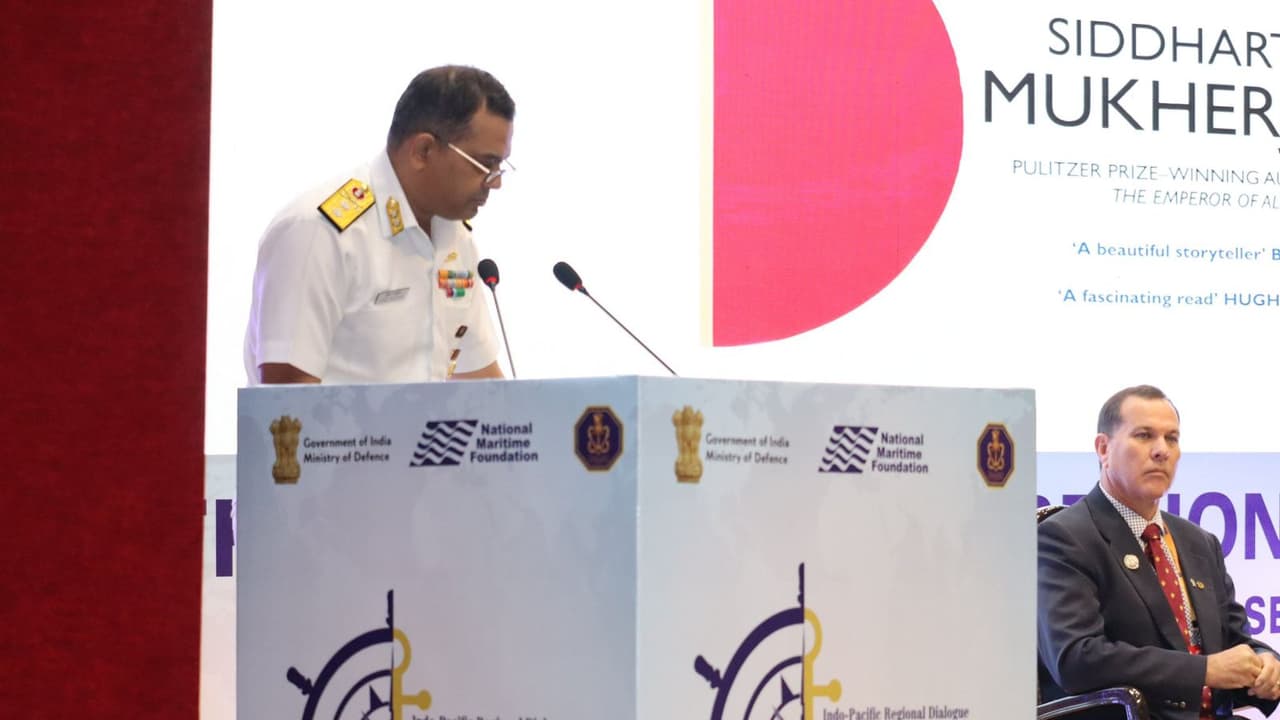At Indo-Pacific Regional Dialogue 2025, Rear Admiral Kunal Singh Rajkumar highlighted the strong alignment between India’s Indo-Pacific Oceans Initiative and Africa’s Integrated Maritime Strategy 2050. Both frameworks emphasize maritime security.
New Delhi: At the Indo-Pacific Regional Dialogue (IPRD) 2025 in New Delhi, Rear Admiral Kunal Singh Rajkumar, Joint Secretary (Navy and Defence Staff), Department of Military Affairs (DMA) underlined the growing synergy between India’s Indo-Pacific Oceans Initiative (IPOI) and Africa’s Integrated Maritime Strategy (AIMS 2050), describing the two frameworks as being ‘in complete congruence’ on goals ranging from maritime security to sustainable blue-economy development.
Moderating a session titled “Strengthening the Africa Integrated Maritime Strategy 2050 (AIMS-2050)”, RAdm Rajkumar said that Africa’s long-term maritime vision and India’s regional approach under the IPOI share common objectives of capacity building, environmental protection and cooperative security.
“This congruence of strategic thought and intent,” he said, “provides a strong basis for collaboration across the Indian Ocean and African littorals.”
Indo-Pacific Oceans Initiative and Combined Exclusive Maritime Zone of Africa
The Indo-Pacific Oceans Initiative, launched by Prime Minister Narendra Modi in 2019, rests on seven pillars — including maritime security, marine ecology, capacity building, and trade connectivity — each led by different partner nations.
Rajkumar noted that these correspond closely with AIMS 2050’s priorities, particularly in areas such as governance, capability enhancement and sustainable resource management.
Africa’s Integrated Maritime Strategy 2050, adopted by the African Union, seeks to harness the continent’s ocean resources through security cooperation, blue-economy growth and regional coordination.
It also envisions the creation of a Combined Exclusive Maritime Zone of Africa and a common maritime information-sharing network.
RAdm Rajkumar pointed out that while several regional coordination centres and reporting tools have become operational, flagship projects such as a continent-wide Maritime Information and Coordination Cell and a unified fisheries policy are still pending.
“Some progress has been achieved, but many areas require renewed political will and practical implementation,” he observed.
He also placed Africa’s maritime context in perspective, noting that the continent spans 30 million square kilometres, bounded by the Atlantic, Indian and Southern Oceans, with 55 countries and a young, fast-growing population.
The panel on AIMS 2050 formed part of IPRD 2025’s wider theme, “Promoting Holistic Maritime Security and Growth: Regional Capacity-Building and Capability-Enhancement.”
The discussions reflected India’s continuing effort to integrate African partners into a cooperative Indo-Pacific framework aimed at a safe, secure and prosperous maritime domain.
